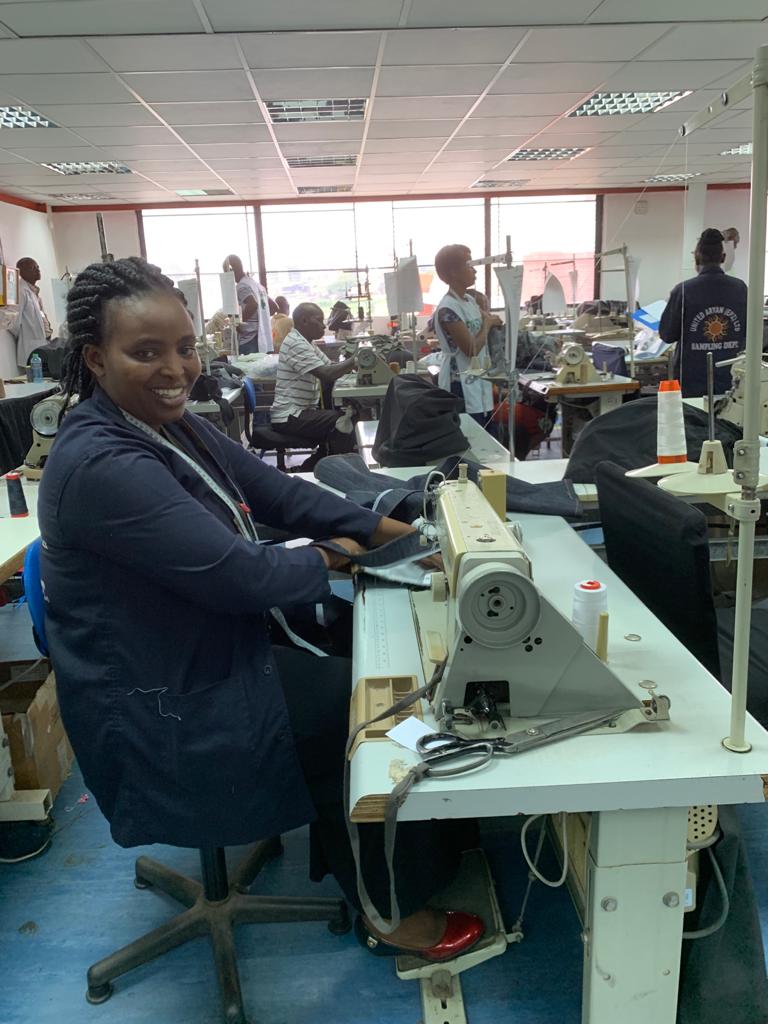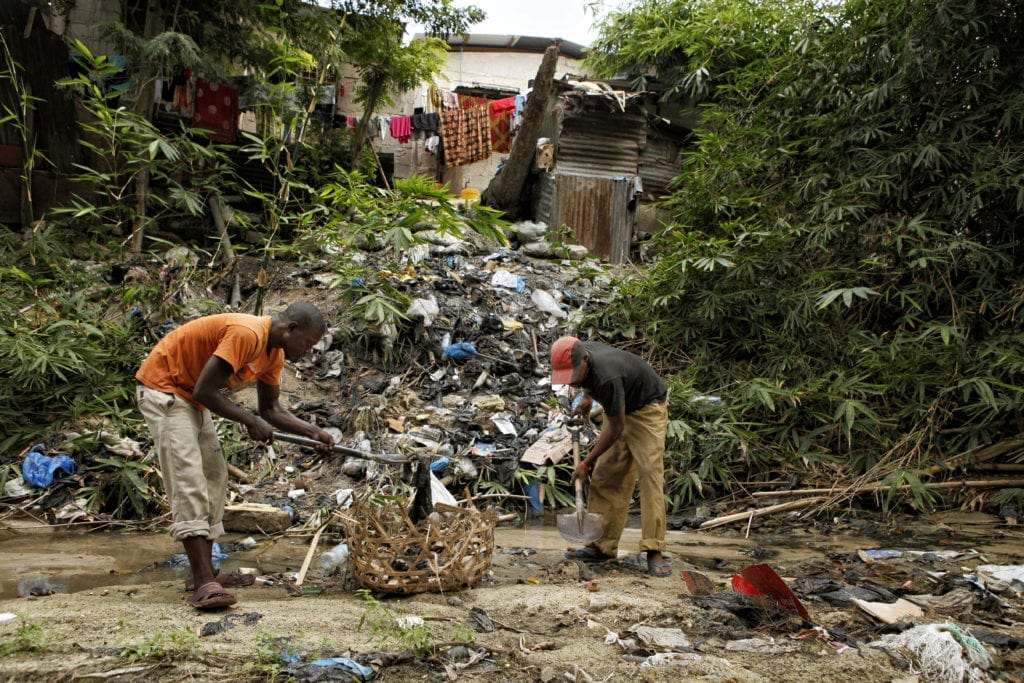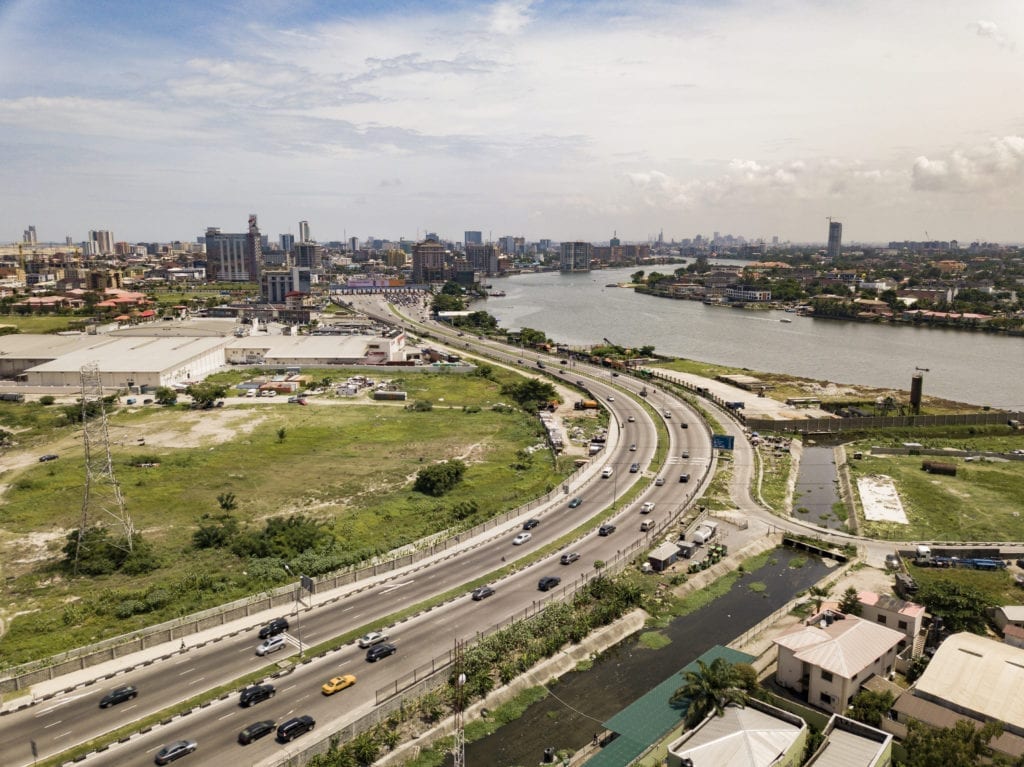REVOLVE Circular met up with Dr Anthony Nyong, Director of Climate Change and Green Growth at the African Development Bank (AfDB). In this position, Dr. Nyong is also responsible for the secretariat of the African Circular Economy Alliance (ACEA).
Today, the ACEA serves as a centralized platform for knowledge-sharing and best practices identification, the creation of enabling legal and regulatory frameworks, as well as the building of partnerships for financing and the creation of circular economy projects in Africa.
The Alliance is open to membership from public sector entities, international organizations, funding institutions and research centres. The ACEA Secretariat is hosted by the African Development Bank with support from the World Economic Forum.
REVOLVE: Dr Nyong, tell us a bit about how ACEA came to be? Is it correct to say that the governments of South Africa, Nigeria and Rwanda were the driving forces? Which other countries are already involved?
Dr Nyong: Yes, that is correct. The African Circular Economy Alliance (ACEA) was founded by three countries: Rwanda, Nigeria, and South Africa who currently serve as the Co-chairs of the Alliance. It was conceived in 2016 during the World Economy Forum on Africa in Kigali and formally launched at the COP 23 in Bonn in 2017.
This year, Ghana and Côte d’Ivoire joined the Alliance and other countries such as Niger, Senegal, Malawi, Cameroon, and the DR Congo have indicated an interest to join.
The COVID-19 pandemic has not only presented health challenges but has also led to unprecedented economic and societal challenges for which circular economy solutions can serve to curb.
The main aim of the Alliance is to provide a platform where members can support the transition to a circular economy at the national, regional and continental levels that delivers economic growth, jobs and positive environmental outcomes.
The objectives of the alliance include the sharing of best practices for the creation of legal and regulatory frameworks, the building of partnerships and the financing and creation of circular economy projects, as well as mainstreaming circularity into national development strategies and plans. Furthermore, we advocate and raise awareness on the circular economy and mobilise concessional finance for new projects and partnerships within individual or multiple African countries.
REVOLVE: So who does the ACEA consider as its key stakeholders: governments? Corporate leaders? Academia? Who do you engage with and how do you do that?
Dr Nyong: ACEA engages a wide variety of key stakeholders and partners. It is a government-led coalition with representatives within key ministries of the countries. It is supported by strategic partners consisting of international organizations and funding institutions such as the World Economic Forum, African Development Bank, Global Environment Facility, the Finnish Government, the Platform for Accelerating the Circular Economy, Africa Circular Economy Network and UN Environment Programme (UNEP).
These partners provide technical and financial support to the Alliance for the execution of the circular economy strategy within the continent. The Alliance also works closely with the private sector by way of consultation and collaboration on specific projects or activities.

REVOLVE: What are the main challenges for more circular policies and practices in Africa? And which questions do African governments and other stakeholders interested in circularity ask?
Dr Nyong: The main challenges in establishing more circular policies and practices are around: the understanding of the concept as most people easily equate it to waste collection and recycling, the lack of business support programs, availability of data and knowledge, adequate financing, access to technology and necessary infrastructure.
Each of these plays an important role to developing the continent’s circular economy. For instance, business support services, access to technology and adequate financing are key activities in scaling circular businesses while increased availability of data and knowledge on Circular Economy will support advocacy and increased awareness.
The main question that governments and other stakeholders ask is “How do we mobilize the technical and financial resources to demonstrate that the incorporation of circular economy principles will actually create decent jobs and stimulate the entire economy?”
REVOLVE: In the framework of the World Circular Economy Forum (WCEF) 2020 you highlighted circular economy opportunities to accelerate the transition to a low-carbon and climate-resilient development model that bolsters jobs for youth, green innovations and sustainable development in Africa.
Could you introduce some of the opportunities for such a development model to our readers?
Dr Nyong: The ACEA recently conducted a market research on Circular Economy opportunities and gaps in Africa. The major opportunities we have come across are within five major themes or trends: food systems, Packaging, built environment, electronics, and fashion, all of which will support industrialization efforts.
These opportunities are conversion of food waste into compost fertilizer, recycling of Polyethylene Terephthalate (PET) bottles and other plastic polymers, use of mass timber as a sustainable construction input, recycling of high value e-waste, and converting fashion and textiles waste into garments for commercial exports amongst others, all while using efficiency standards to create sustainable African manufacturing hubs.
There are a whole range of circular opportunities for the African continent, but these five are what we see playing a big role in the immediate term, anchored largely on SDG12 – responsible consumption and production, with relevance to all the other SDGs.
Also, the COVID-19 pandemic has not only presented health challenges but has also led to unprecedented economic and societal challenges for which circular economy solutions can serve to curb. Circular economy businesses present opportunities to ensure local supply of products and services that are relevant considering the mobility restrictions and global supply shocks presented by the pandemic.
Investments in circular solutions can bolster recovery from the pandemic through increased localized production, self-sufficiencies, and potentially create thousands of new jobs. An example is Coca Cola’s PET recycling program in South Africa that helps the firm secure inputs during global supply shocks while providing green jobs for 60,000 people.

REVOLVE: Circular policies and practices potentially play an important role in at least three of the current Bank’s five development priorities, known as the High 5s, namely to light up and power Africa, to feed Africa, and to industrialize Africa.
Are there already any thoughts about streamlining circularity into these priorities and Bank operations?
Dr Nyong: In fact, the African Development Bank recognizes the strategic role that circularity can play in achieving all the High 5’s, this includes ‘Feed Africa’, ‘Light-up Africa’, ‘Integrate Africa’, ‘Industrialize Africa’ and ‘Improve the quality of life for the people of Africa’.
Projects in the Bank’s portfolio that focus on promoting resource efficiency and abating greenhouse gas emissions – such as water saving irrigation, integrated urban transport, renewable energy and waste management – can already be classified as contributing to a more circular economy.
Circular principles are tied to all of the five priority areas. In order to further mainstream the circular economy, the Bank is implementing a new flagship program, the Africa Circular Economy Facility (ACEF), which will act as an umbrella to create synergies, enhance complementarities and avoid overlaps between the various circular economy-related projects financed by the Bank.
REVOLVE: This sounds very interesting – can you tell us more about this Facility? What is its status? How much funding is available? Which countries or other parties do provide co-funding?
Dr Nyong: The ACEF is a multi-donor trust fund of the African Development Bank to support the adoption and diffusion of circular practices in Africa. This new Facility has already secured a 4 million Euro grant from the Government of Finland and the Nordic Development Fund but is not yet operational.
It will commence operations in the first quarter of 2021. It will initially operate as a trust fund providing seed capital for business development of micro, small and medium-sized enterprises (MSMEs), supporting the establishment of circular economy incubation hubs, and enhancing institutional capacity building for public and private sector entities.
It will also support the achievements of the objectives of the African Circular Economy Alliance, especially in mainstreaming circularity into national development strategies and plans. The Bank will mobilize more resources into the Facility to provide focused and coordinated support to the implementation of circular economy principles on the African continent.

REVOLVE: Let us zoom in into one of the high 5’s – agriculture and feeding a continuously growing number of Africans. Almost 1 in every 2 people in Africa is employed in agriculture; agro-industry has enormous potential, and the Bank strongly supports and funds the growth of the agricultural sector throughout the continent.
Does the Bank already consider closed-loop systems in its agriculture financing? Or promote circular practices for more efficient food processing and food consumption?
Dr. Nyong: Yes, the Bank already considers closed-loop agriculture systems under its Feed Africa Strategy for agricultural transformation. The strategy aims to achieve food security and move Africa to the top of key agricultural value chains. The Bank has already implemented a Climate Smart Agriculture (CSA) program that aims to help ten million food producers adopt CSA technologies and provide 500,000 ha of agricultural land with resilient irrigation infrastructures by 2025.
Additionally, the Bank is financing the development of staple crop processing zones which will be critical to reduce post-harvest loss and promote efficient food systems in regional member countries. The Bank is also promoting projects where wastes generated from agriculture serve as inputs for power generation.
As mentioned earlier, the ACEA has also identified food systems as one of five major trends for Circular Economy opportunities. Food waste is a massive challenge on the continent, contributing close to half (49%) of the waste generated. We found numerous opportunities across food systems that can help address existing challenges.
In production, opportunities include the use of Climate Smart Agriculture and improved access and use of equipment, particularly storage equipment -using sharing models. In processing and distribution, the opportunities are focused on green manufacturing and shared logistics services, respectively. Consumption opportunities exist for embracing improved African cuisines and for food diversion driven by the hospitality sector.
In post-consumption, there are numerous opportunities for waste conversion particularly in waste-to-energy and waste-to soil enhancer/ fertilizer. Research shows that circular policies and practices have enormous potential for helping to achieve many of the Sustainable Development Goals (SDGs), in Africa and elsewhere.
REVOLVE: Is this link already being made? In concrete terms: are there African governments or other stakeholders that already consider circularity in their respective SDG strategies?
Dr Nyong: The Circular Economy opportunities that the ACEA is exploring also consider how to support the different member countries in achieving their SDG goals. These opportunities touch on almost all the SDG goals, either directly or indirectly, but mainly add to SDG 2 for Zero Hunger, Decent Work and Economic Growth in SDG 8, Sustainable Cities and Communities in SDG 11 and SDG 12 on Responsible Consumption and Production.
For example, Circular Economy approaches applied to food systems could be significant to ending hunger – in Niger, food security was improved for 2.5 million people through land rejuvenation.
For more sustainable cities, the potential for savings from energy efficient buildings is estimated at 21% of projected total energy supply in countries of the Middle East and North Africa by 2025. In terms of economic growth, a study in Kenya also shows that a transition to a green economy will double per capita income, increase GDP by 12%, and reduce CO2 emissions by 12%.
In addition to the SDGs, countries have identified circular economy opportunities in their Nationally Determined Contributions (NDCs) under the Paris Agreement, which the African Development Bank is helping to implement.
REVOLVE: What are the main challenges for more circular policies and practices in Africa? Which questions do African governments ask?
Dr Nyong: The main challenges in establishing more circular policies and practices are: the understanding of the concept as most people easily equate it to waste collection and recycling; the lack of business support programs; availability of data and knowledge; adequate financing; access to technology; and necessary infrastructure.
Each of these plays an important role to developing the continent’s circular economy. For instance, business support services, access to technology and adequate financing are key activities in scaling circular businesses while increased availability of data and knowledge on Circular Economy will support advocacy and increased awareness.
The main question that governments and other stakeholders ask is “How do we mobilize the technical and financial resources to demonstrate that the incorporation of circular economy principles will actually create decent jobs and stimulate the entire economy?”

REVOLVE: A further key challenge of the continent is the enormous size and importance of populations working in the informal sector, particularly when it comes to waste management but also in other industries.
The most recent Circularity Gap Report 2020 recommended educating, upskilling and organising informal workers as an important transition pathway towards circularity for African economies – what role does ACEA see for the informal sector in a potentially more circular Africa?
Dr Nyong: Africa’s informal sector consists of thousands of Micro-, Small and Medium-Sized Enterprises (MSMEs); these are best positioned to drive the circular economy as they form the backbone of the African economy, and they are included as a big part of the solutions being explored. In Nigeria for instance, this constitutes almost 50% of the nation’s GDP.
According to UN Environment Programme, MSMEs in Africa appear to be taking the lead in adopting circular economy principles and driving the transition by building innovative business models.
This is also due in part to the nature of these businesses, as their nimble operating models allow them to quickly adapt to changing appetites and business landscapes. The Circular Economy solutions explore formalizing processes such as waste collection and recycling within the informal sectors.
Circular Economy looks to equip informal players with the necessary skills and supportive environment to help them grow green solutions. The Circular Economy also supports the creation of new job opportunities especially for those at the bottom of the pyramid.
REVOLVE: What do you see for the future of ACEA?
Dr Nyong: Through the ACEA’s Theory of Change, we envision our short to medium term goals around policy development, leadership and advocacy, and the scaling of circular economy businesses and projects. This will include three main activities: One, development of country work streams for the Alliance’s priority areas and the harmonization of policies across countries.
Two, increase country membership, development of Circular Economy academia and exploration of circular innovations and businesses in member countries; and three, support to existing circular economy projects in member countries and fostering of partnerships between organizations working in the Circular Economy space.
We are already piloting the operationalization of our Theory of Change with one of the co-chairs of the ACEA, through a Nigeria Circular Economy Working Group (NCEWG). The NCEWG is a voluntary group of multi-sectoral professionals from government, private sector, academia and non-state actors with circular economy expertise, coming together to support a robust circular economy agenda for Nigeria. The working group is currently designing a National Circular Economy Road Map.
The Bank is also investing in the development of the program ‘Transitioning Africa to a Circular Economy – Eliminating Persistent Organic Pollutants (POPs) and Mercury from the Supply Chains of Materials and Products in Africa (TRACE)’, in partnership with the Global Environment Facility and a number of UN Agencies. Part of developing a truly functional circular economy means ensuring that material flows and loops are free of toxic chemicals and mismanaged hazardous waste.
The TRACE program is being designed to support the environmentally sound management of POPs and mercury in Africa. This will involve reducing emissions, safe disposal, integrating financial instruments, enhancing good governance and strengthening African countries’ compliance with Multilateral Environmental Agreements through a Circular Economy approach.
As a convener and honest broker, the Bank will continue to step up efforts to de-risk circular economy innovation through diverse financial instruments and through resource mobilization efforts to grow the ACEF endowment. Partnerships created through the ACEA will also help attract more donors to the trust fund.
Read the interview from the source here
